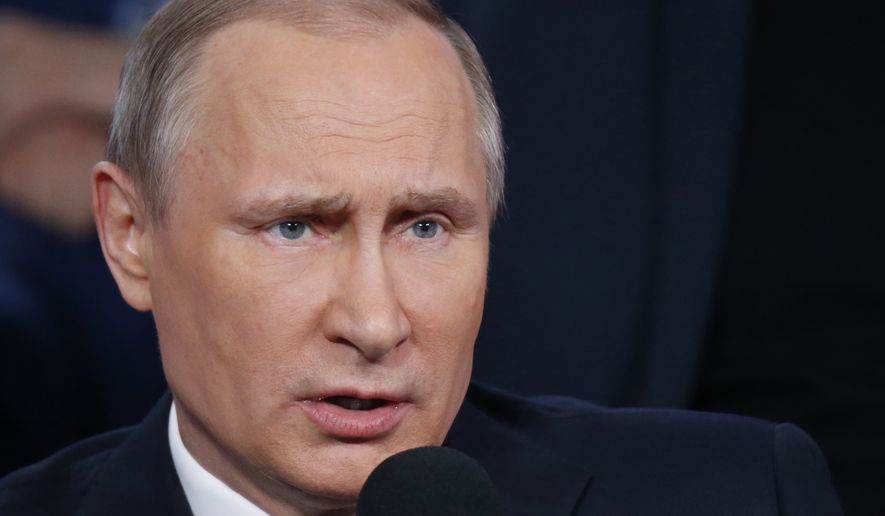ANALYSIS/OPINION
Back in the days of Ivan the Terrible, the 16th century czar devised a system of government to control the population and maintain power throughout his vast lands.
The system came to be known as the “oprichnina” — or “special” — way. Although horrific in its actual execution (pardon the pun), the original intent was to install noblemen on estates who were loyal to the czar, men Ivan could trust. Unfortunately, the unstable czar, tortured by the deaths of his wife and son, became clinically paranoid and developed a bad habit of frying his adversaries in large iron skillets. However, the original concept was simple — establish a private army that would be loyal to the king.
We may be seeing a similar concept being tried in Russia today with the recent formation of the Kremlin’s new nationwide internal security force, dubbed the National Guard.
Russian President Vladimir Putin, increasingly concerned about the economy and the potential for social unrest, has finally established the long-discussed loyal security force right out of Ivan’s playbook. Combining multiple agencies into one federal police and security apparatus, Mr. Putin has revived the concept of oprichnina — without the frying pans, of course.
Speaking to his security chiefs Wednesday, Mr. Putin said the new organization will be formed to “fight terrorism and organized crime.” The unit will unite multiple domestic security entities into one force reporting directly to the president.
The stated purpose of the National Guard seems to be a convenient half-truth. Although the Guard will indeed have new powers to combat the threat of terror, its real purpose is to solidify the Kremlin’s control over the population and to keep tabs on any political opposition. To give you an idea of the size and scope of the new enterprise, the anticipated number of troops available under its command would be around 400,000, approximately the size of the shrunken U.S. Army.
Mr. Putin has put Viktor Zolotov in charge of the new nationwide force. An old KGB operative, Mr. Zolotov is the bodyguard to both Mr. Putin and predecessor Boris Yeltsin, and his relationship to Mr. Putin goes way back to the St. Petersburg days when the president was just beginning his rise to power in the 1990s. Now a minister and member of the National Security Council, Mr. Zolotov enjoys Czar Vladimir’s total trust.
Mr. Putin’s move is a sweeping reorganization that will have clear winners and losers, and should not be underestimated in its ability to focus his control and agenda, at home and abroad. When this new force is stood up and running, Mr. Putin will be less worried about domestic reaction to his actions overseas, whether in Ukraine, Syria or elsewhere. Mr. Putin is nothing if not a long-term thinker, typically several steps ahead of his Western adversaries.
The question is, why now? What does the timing of this unexpected move say about the Kremlin’s intentions inside and outside of Russia? And what does it say about the Kremlin’s view of the Russian economy over the next several years?
The answers may not be happy ones.
Perhaps Mr. Putin sees oil staying in the $30-$40 range for the foreseeable future and understands what havoc this will bring for the economy and the government’s coffers. Perhaps Moscow is seeing the seeds of a new round of social unrest forming in the opposition. Perhaps Mr. Putin and his aides fear that punishing Western sanctions will remain in place for the foreseeable future and that the campaign to weaken European and American resolve has failed. Perhaps the czar is planning new international intrigues.
In any event, the Kremlin, with its shiny new National Guard standing watch, will be much better positioned to head off anything that may threaten the czar, just like the oprichnina did a long time ago.
• L. Todd Wood, a former U.S. military helicopter pilot and Wall Street debt trader, is a contributor to Fox Business, the National Review and many other publications. He can be reached through his website, LToddWood.com.




Please read our comment policy before commenting.